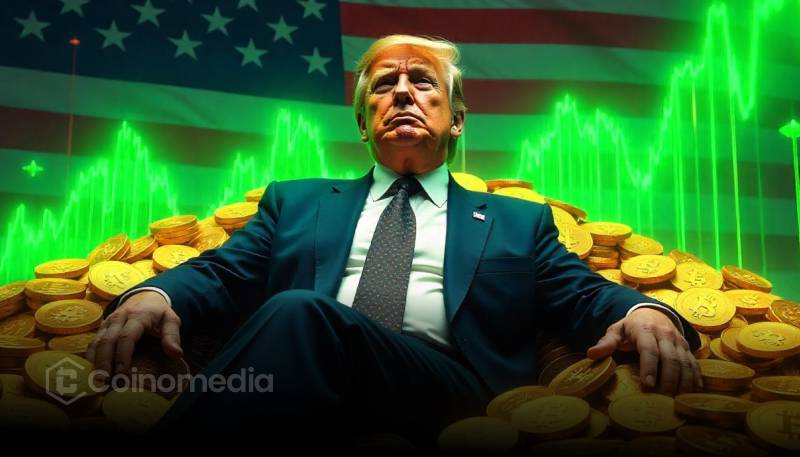Trump’s Korea Trade Deal: $350B Investment & 15% Tariffs
Trump announces Korea trade deal with $350B investment and 15% tariffs, signaling a bold economic move with global implications.

- Trump reveals $350B Korea investment deal and 15% import tariffs
- • Trade deal may impact tech, auto, and crypto markets
- • U.S.–Korea relations enter a new economic phase
A Bold Trade Shift with South Korea
In a major trade announcement, former President Donald Trump has confirmed a sweeping new agreement with South Korea. The deal includes a massive $350 billion investment commitment along with a 15% tariff on unspecified imports. The combination of protectionist trade measures and large-scale investment marks a strategic recalibration of U.S.–South Korea economic relations.
This sudden policy announcement has raised eyebrows in political and financial circles alike, given its mix of penalties and incentives. While the tariffs are expected to pressure Korean exporters, the investment could benefit both nations—especially in key sectors like technology, semiconductors, and clean energy.
What It Means for Global Markets
South Korea is a major global supplier of electronics, autos, and high-tech components. A 15% tariff on imports could disrupt the flow of goods into the U.S., raising costs for American businesses and consumers. At the same time, the $350 billion investment opens doors for cross-border collaborations and infrastructure expansion.
Market analysts suggest that this deal could impact stock markets, especially in tech and automotive industries. The Korean won and South Korean stocks may experience volatility as the market adjusts to the new dynamics. Crypto traders, too, are watching closely—South Korea is a key player in the global crypto market, and major financial moves could shift investor sentiment quickly.
Strategic Implications Beyond Trade
This Korea trade deal also reflects a broader geopolitical strategy. By blending tariffs with large-scale investment, the U.S. may be signaling a push for more controlled but productive global partnerships. It shows intent to strengthen economic ties while protecting domestic interests, a move that resonates with Trump’s America-first agenda.
While details of the sectors affected by the tariffs are still emerging, the size of the investment indicates potential collaboration in sectors like defense, tech infrastructure, energy, and digital innovation.
Read Also:
- Traders Flock to BlockDAG as Price Stays at $0.001 for 10 Days Only, While BNB Flatlines and XRP Holds the $2 Mark
- Best Crypto to Buy: PEPE Consolidates, Etherna Pepe Stalls, While ZKP Targets 100x–10,000x
- ZKP Outshines Solana & Zcash: Experts Tag It the Best Crypto to Buy for 7000x Upside
- 10 New Presale Crypto Projects That Could Deliver 100x–10,000x Gains Before Listings Begin
- From $0.001 to $0.05: Here’s How BlockDAG’s Locked ROI is Crushing Render & Bonk This Week!



